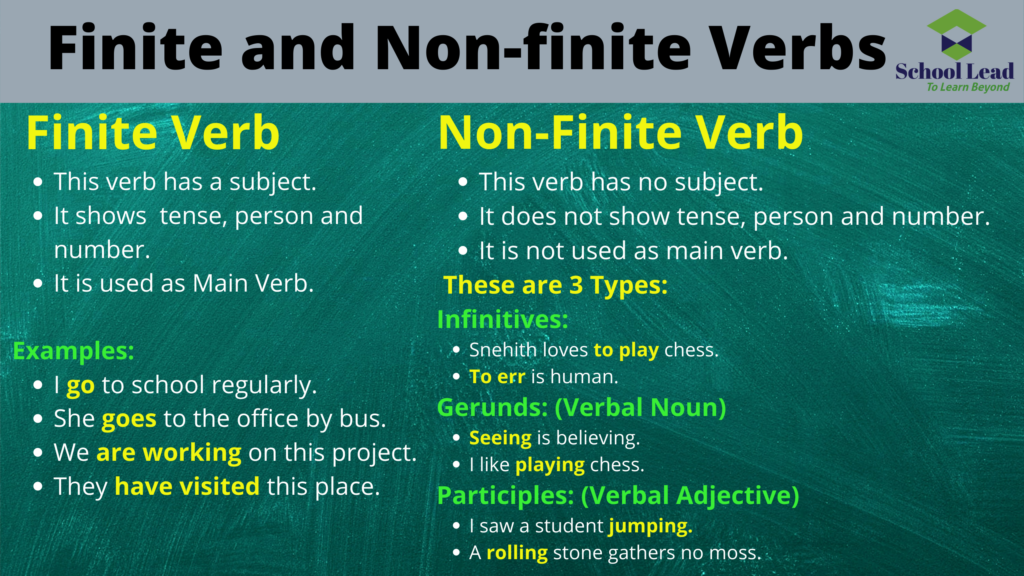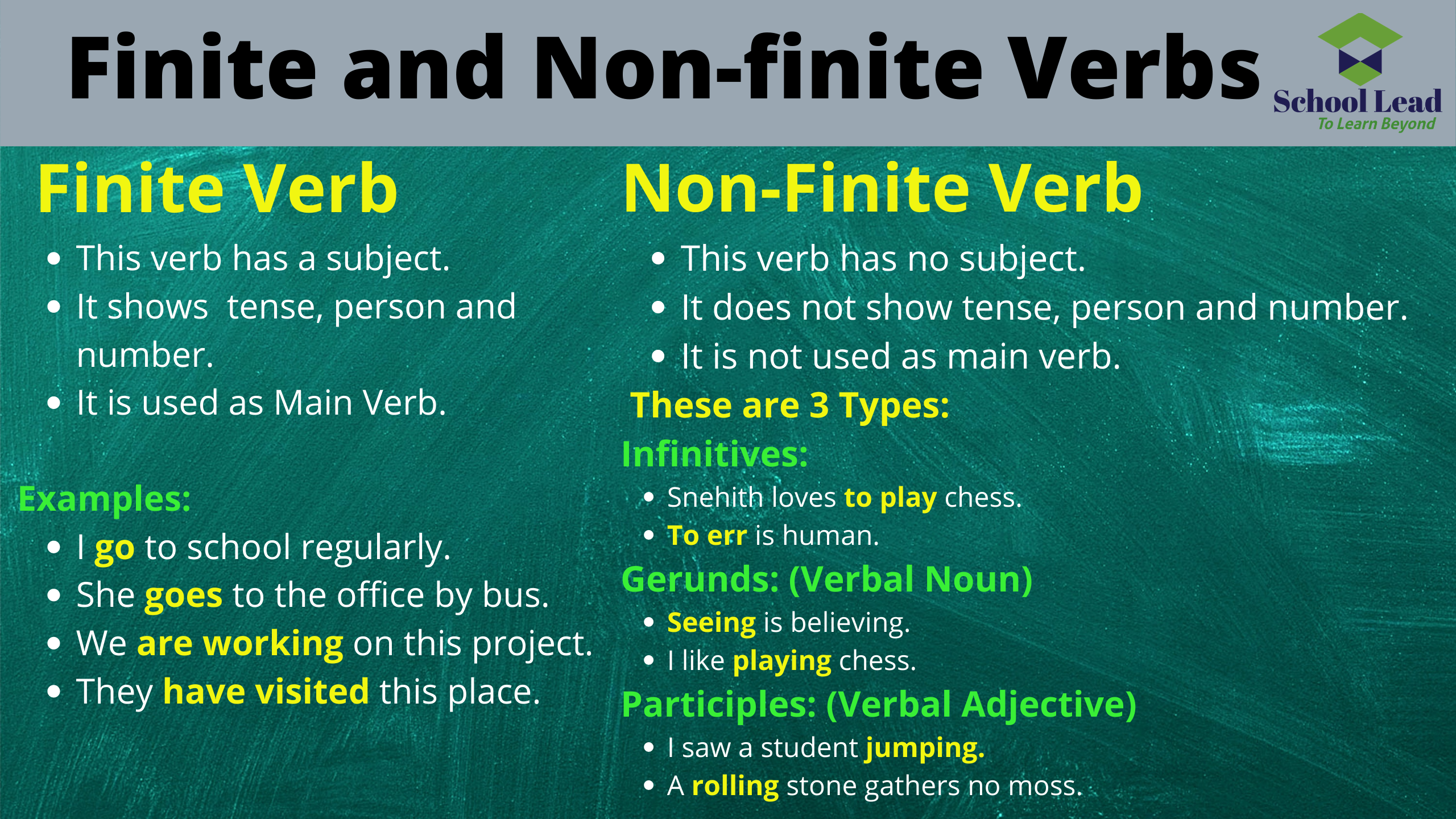
Finite and Non-finite Verbs
The Verb is of two types – Finite and Non-finite Verbs. Finite verbs are used as the main Verbs and are limited by subject, tense and number whereas non-finite verbs are not limited by subject, tense and number.
A Finite Verb:
A verb that has a subject and shows grammatical tense, person and number is called a Finite Verb. These verbs are also called Main Verbs.
Examples:
- I go to school regularly.
- She goes to the office by bus.
- We are working on this project.
- They have already visited this place.
A Non-Finite Verb:
A verb that has no subject and does not show grammatical tense, person and number is called a Non-Finite Verb. These verbs are usually infinitives, gerunds, or participles.
Examples:
- Snehith loves to play chess.
- To err is human.
- You can impress them with your smiling face.
- Smoking is injurious to health.
Note:
Sagarika learns to speak English.
In the above sentence, ‘learns’ is a Finite Verb because it has a Subject and is limited by the Number and Person of its Subject, namely Sagarika.
But the verb ‘to speak’ is a Non-Finite Verb because it has no subject and is not limited by the Number and Person. We do not change this Verb whatever be the Subject of the Sentence.
Examples:
- He learns to speak English.
- We learn to speak English.
- They learn to speak English.
Kinds of Non-Finite Verbs
Non-Finite Verbs are found in three different groups – Infinitives, Participles and Gerunds.
The Infinitives are the verbs that are not limited by any subject, tense, person and number. They are generally used to show the actions and events in a more general way rather than to show the particular time and action.
Examples:
- To find fault with others is easy.
- To confuse others is his hobby.
- He decided to attend the interview.
- My idea is to go there.
There are two kinds of Infinitives:
- To Infinitive: to eat, to play, to drink, to clean etc.,
- Plain/Bare Infinitive (without to): eat, play, drink, clean etc.,
The Participle: (Verbal Adjective)
A participle is a form of the verb that is used as an adjective. A participle is used to modify either a noun or a pronoun. It is also known as a verbal adjective.
Examples:
- I saw a student jumping.
- A rolling stone gathers no moss.
- Driven by passion, he entered the teaching profession.
- Having finished my work, I left my office.
There are three kinds of Participles:
- Present Participle: eating, playing, drinking, cleaning etc.,
- Past Participle: eaten, played, drunk/drunken, cleaned etc.,
- Perfect Participle: having eaten, having played, having drunk, having cleaned etc.,
The Gerund is a form of the Verb ending in ‘-ing’ and used as a Noun. It is also called a Verbal Noun.
Examples:
- Seeing is believing.
- I like playing chess.
- Teaching is my profession.
Related Reads:



Comments are closed.